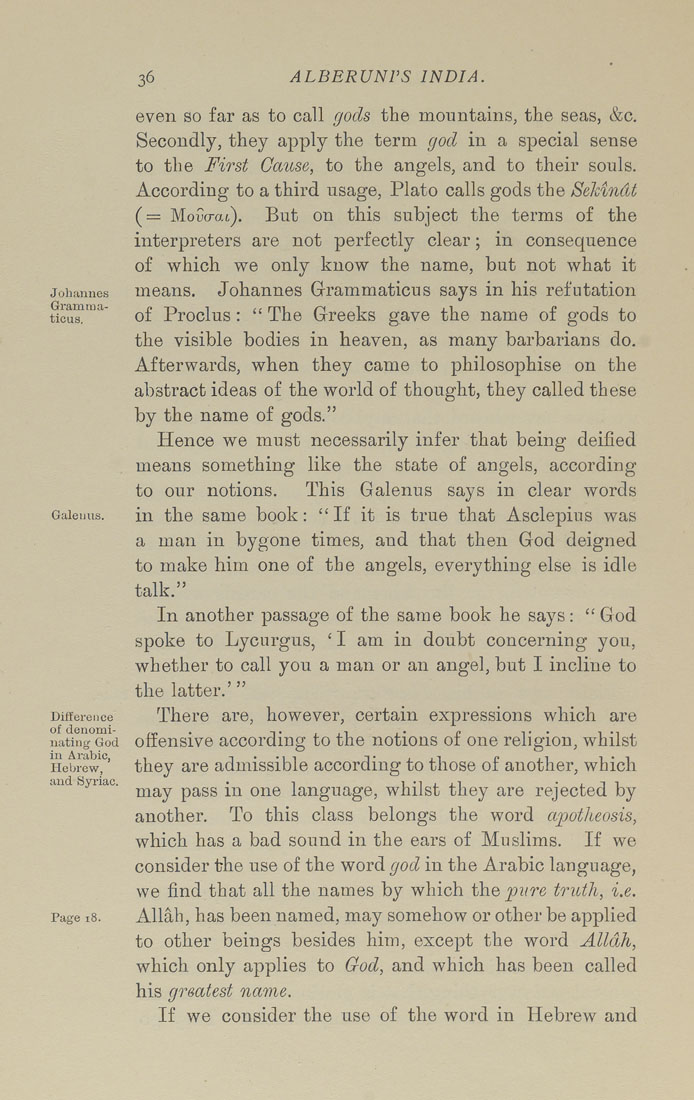Bīrūnī, Muḥammad ibn Aḥmad, Alberuni's India (v. 1)
(London : Kegan Paul, Trench, Trübner & Co., 1910.)
|
||
|
|
|
|
| Page 36 |

36 ALBERUNPS INDIA. Joliannos Gramma¬ ticus. Galenus. Difference of denomi¬ nating God in Ax'abic, Hebrew, and Syriac. Page i8. even so far as to call gods the mountains, the seas, &c. Secondly, they apply the term god in a special sense to the First Cause, to the angels, and to their souls. According to a third usage, Plato calls gods the Sekindt (= Mouo-at). But on this subject the terms of the interpreters are not perfectly clear; in consequence of which we only know the name, but not what it means. Johannes Grammaticus says in his refutation of Proclus: " The Greeks gave the name of gods to the visible bodies in heaven, as many barbarians do. Afterwards, when they came to philosophise on the abstract ideas of the world of thought, they called these by the name of gods." Hence we must necessarily infer that being deified means something like the state of angels, according to our notions. This Galenus says in clear words in the same book: "If it is true that Asclepius was a man in bygone times, and that then God deigned to make him one of the angels, everything else is idle talk." In another passage of the same book he says: " God spoke to Lycurgus, ' I am in doubt concerning you, whether to call you a man or an angel, but I incline to the latter.'" There are, however, certain expressions which are offensive according to the notions of one religion, whilst they are admissible according to those of another, which may pass in one language, whilst they are rejected by another. To this class belongs the word apotlieosis, which has a bad sound in the ears of Muslims. If we consider the use of the word god in the Arabic language, we find that all the names by which the pure truth, i.e. Allah, has been named, may somehow or other be applied to other beings besides him, except the word Alldh, which only applies to God, and which has been called his greatest name. If we consider the use of the word in Hebrew and |
| Page 36 |







